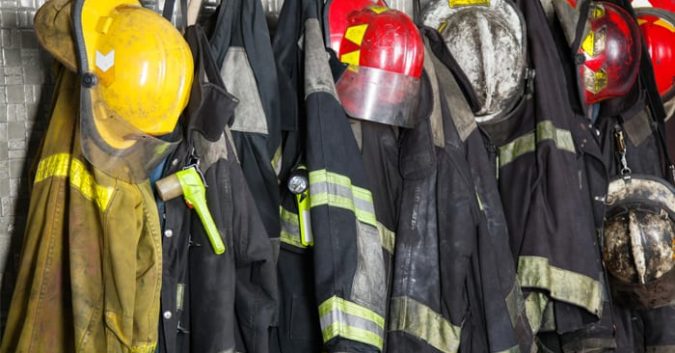Firefighting is obviously a dangerous profession. Every year, thousands of men and women risk their health and safety to save lives, homes and communities. Yet entering a burning building is only one of the ways that firefighters put themselves in jeopardy. A much lesser known but equally threatening aspect of this profession is the high cancer risk faced by these first responders.
This pressing health risk is why Congress passed the Firefighter Cancer Registry Act last year. The Act was later signed by the President, creating a database that will be controlled by the Center for Disease Control and Prevention (CDC). This agency will develop a list of firefighters and their medical and career history, so researchers can better track and understand cancer among this population.
There is no doubt that cancer rates are tragically high among firefighters. According to CDC, firefighters have a 9% greater chance of developing cancer, and a 14% greater chance of dying from it, than the general public. These sobering statistics are why this registry is so badly needed as a means to help some of our nation’s bravest individuals.
A Long Overdue Research Registry
While the connection between firefighting and cancer is well-established, there have been few studies linking firefighting and certain kinds of cancers. Some research has begun to investigate this issue, such as a study by the National Institute for Occupational Safety and Health (NIOSH).
This initiative followed 30,000 firefighters from 2010 to 2015, and found that their rates of developing certain kinds of cancers were particularly high. These types included digestive, respiratory, oral, and urinary cancer, Many individuals under 65 also had bladder or prostate cancer at a young age. Additionally, firefighters had twice as many cases of mesothelioma, a devastating disease caused by exposure to asbestos.
Along with examining why firefighters tend to get certain types of cancers, part of the goal of this registry is to help researchers investigate which kinds of fires pose the highest risk to human health.
The bill to create the registry was written as a bipartisan effort by Reps. Chris Collins, a Republican from New York, and Democrat Bill Pascrell of New Jersey. According to Rep. Collins:
“We currently have a lack of information about how being exposed to certain fires will impact a firefighter’s health, and this is a commonsense way to collect that data to improve protocols and equipment.”
The Act was met with approval from firefighters around the world. International Association of Fire Chiefs President Thomas Jenkins expressed his gratitude, saying this registry will “help with critical research so we can better understand the causes and outcomes of cancer in the fire service and help us identify ways to mitigate and prevent it.”
Beginning the Process
In passing this Act, Congress allocated $1 Million to NIOSH for 2019 to help start the registry. The agency is currently developing ideas for encouraging participation in the registry. Their efforts will begin with collecting employment records from fire departments across the country that are participating in the registry. NIOSH will then connect that information to information from state cancer registries.
The end goal is to gather data from a range of demographics, including firefighters in urban and rural settings, and career as well as volunteer firefighters. Previous studies have not included many women or minority firefighters, or data on volunteer firefighters.
Including information on these volunteers is crucial, since they compose about 70% of the nation’s firefighters. Additionally, 85% of the nation’s fire departments are all or mostly composed of a volunteer staff. This is especially true in rural and smaller communities, where volunteers serve a critical role as first responders.
Saving the Lives of Lifesavers
It isn’t difficult to find examples of the serious impact of firefighting and rescue efforts on the health of first responders. Those who served during the 9/11 tragedy are continuing to feel a toll on their health that will only worsen. Almost 10,000 people have been diagnosed with cancer related to those events, and over 400,000 people were exposed to the toxic cloud around the World Trade Center.
While not all of the chemicals in that dust may have been identified, it was known to contain fiberglass, mercury, asbestos and benzene, a known cancer-causing chemical that also contaminated the drinking water at Camp Lejeune.
Individuals who inhaled those substances have developed asthma, cancer and chronic respiratory problems. Almost 200 people have died from illnesses related to 9/11, and more are sure to follow.
Similar problems are faced by first responders fighting wildfires in the west. Last year thousands of people were displaced and over 100 people were killed because of these fires, including 6 firefighters. Yet even after the blazes have been extinguished, there is a pressing risk from chemicals and other hazardous substances that linger in the air for weeks.
Given these risks to the public, and to firefighters who actively put themselves in harm’s way, it is crucial that we develop a better understanding of how firefighting and air quality contributes to cancer risk. Improving our research capabilities will lead to improved safety gear, treatments for these deadly diseases and longer lives for the people who fight to protect our lives and property. It is high time to give back to those who have risked so much for us.
